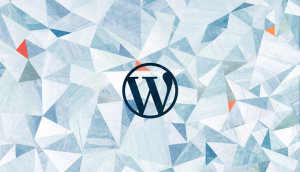Nobody likes a slow website.
With so many options, people have particularly low patience when it comes to slow websites. And that patience is wearing every day. For instance, back in 1999, a user was willing to wait up to 8 seconds for a web page to load. Come 2010, more than half of Internet users would not wait 3 seconds.
Now research has shown that 47% of online consumers expect a page to load within 2 seconds and almost 40% abandon if it takes more than 3 seconds.
To help put matters into perspective, Amazon conducted a study on page load time and the effect it has on the business. They found that a delay in 1 second would cost them up to $1.6 billion in sales. Google estimates that, if their search results took an extra 0.4 seconds, they could lose up to 8 million searches daily.
While you might not be Amazon or Google, the statistics confirm the importance of loading speed for any website. Your slow website could be costing you blog readers, subscribers, customers or whatever your goal on your site is.
Why Speed Matters
So, why does speed matter?
As you may already know, people have a very short attention span. In fact, the length of this attention has been said to be less than that of a goldfish. This then means that, as a website owner, you have very limited time to attract visitors to your site and keep them hooked.
When your site takes a long time to load, you automatically lose visitors to your site due to the bad experience, record a high bounce rate and lose the opportunity to convert visitors into customers.
In addition to this, site speed is also considered an important ranking factor by Google and other search engines. If your site is slow, it gets penalised and pushed a few numbers down in search results.
So the faster your website is, the better the ranking, the more the traffic and the more the revenue.
What Makes a Website Slow Down?
You need to understand what makes a website load slowly, in order to find appropriate solutions that will effectively speed up your WordPress site. The reasons are varied and include:
- The location of your server
The farther your users are from your website server, the longer it takes for them to access it and hence the slow speed.
- Too many file requests
Your website server can only handle a certain number of requests at once. So when you have many users on the site and more file requests than your server can handle, slow loading is inevitable.
- Configuration of your WordPress
When your site is not serving cached pages, you can expect it to slow down and subsequently crash.
- Increased website traffic
As you increase your website’s traffic, your website begins to slow down as it tries to handle the extra traffic.
- Too many plugins
Like with many file requests, having too many plugins on your WordPress site could make it heavy and hence slow the site down.
- Poor performance of your server
Since every information is conveyed from your server, its performance will play a big role in the loading speed.
Now that you understand what slows down your website and why site speed matters, let us take a look at four ways you can effectively speed up your site.
#1: Use a Caching Plugin
Part of the reason why a website could load slowly is having to load at all. What if there was a way to ensure that visitors are able to view certain pages without any load time at all? Website caching helps with this.
A caching plugin creates static pages on your site so that returning visitors don’t have to wait for pages they have viewed before to load all over again. It makes a copy of the pages visited and serves these cached pages to returning visitors.
Some of the powerful WordPress caching plugins you can use for your site include the WP Super Cache and the W3 Total Cache. All of which are available for free.
#2: Use a CDN
CDN means Content Delivery Network. It’s a group of servers located at different parts of the world, but networked to store your files then deliver them to visitors depending on where they are. For instance, a person visiting your site from London gets content from the server closest to them geographically instead of America. This reduces the time they have to wait before getting the file.
Each server making up the CDN stores your website’s static files, including CSS, JavaScript and images. So whenever someone wants to access your content, instead of waiting for information to come directly from your main server, they are served these static files from a server near them.
As more and more people gain access to the Internet, CDNs help to decrease site speed by improving the time it takes for your website to load, reduces the risk of crashing since the load is distributed among many servers and reduces bounce rate as users no longer have to wait a long time.
#3: Monitor Website Performance
Before you can even start optimizing, you first need to monitor the current performance. This is because, unlike a malware that can be easily detected if you have the right tools, a drop in performance is more difficult to detect. By monitoring performance, you will be able to pinpoint the areas slowing down your site and know exactly what to do next.
For this, you can use a tool like ManageWP Performance Check tool.
What does it do? It uses Google PageSpeed and Yahoo!’s YSlow ruleset to run analysis on your website and give you an overall score on your site’s performance. It also gives you a breakdown on what is causing the decline in speed, offering a recommendation for each.
It will even show you the actual parts of your site that are causing the sluggishness, information that will come in handy when you start to optimise.
#4: Choose a Lightweight Theme
When you first create your website with WordPress, you should take a hard look at the available theme options. The theme for your WordPress site plays an essential role in helping your site load faster or slower.
In principle, a feature-rich theme is ideal because you have multiple options at your disposal to help tweak your site. On the downside, themes loaded with features and extraneous code reduce your site’s loading speed. The more features your theme has, the slower your site will load.
Before you buy a premium theme, make sure you’re choosing a lightweight theme that is barren of features. However, this type of theme will help your site load faster and provide your users with a more convenient experience. Even if the theme isn’t rich with features, you can simply find its counterpart on the plugin directory and install that instead, giving you full control on how you want to make your site look and appear.
You can test out each theme you like for speed by running them using the Pingdom Website Speed Test and compare which theme loads the fastest.
Conclusion
The speed of your WordPress site can have a great impact on your website.
A slow website will lead to a bad user experience, high bounce rate, reduced traffic, fewer subscribers, and a poor website ranking by Google and other search engines. And according to available data on shopping cart abandonment, slow loading speed could cost you a lot in revenue, with 79% of online shoppers being unlikely to return to a poorly performing website.
So if you want to enjoy increased revenue emanating from the increased traffic to your website, you need to boost the speed of your WordPress site. On average, a visitor to your website should not take more than 2 seconds waiting for a particular page to load. If this happens, you are bound to lose a lot of customers.
Looking for more strategies and tips like this? Learn more at Metapress and X3 Digital, or connect with Alex Jasin directly on Twitter, Facebook and LinkedIn. Read more of Jasin’s writing on Business Insider, Entrepreneur, The Huffington Post, CMI, Internet Retailer, The Next Web and other major publications.









Mike G
21 May 2017Absolutely right! Thank you for the tips and informations!
Rohit patel
21 May 2017To improve website performance use minimum plugins. I use less then 10 plugins. Also use premium theme from popular developer and choose best hosting.
poria
28 May 2017Thank you sure you only post content filled with jars full of large photographs and graphics so easy to speed up site
virginia12
7 Jun 2017Thank you so much for the great post!
Gurjit Singh
11 Jun 2017very useful information. will help to increase the website performance.. please advise is it good to use free CDN.
Thanks
Rayhan Islam
12 Jun 2017Currently I am using 16 plugins on my blog. And all of them are really necessary for me. Is it impacts a lot on page loading speed?
Scott Wyden Kivowitz
13 Jun 2017That really depends on the plugins you’re using.
yagami
24 Feb 2020Thank you for this great explicit article.
I’m still trying to improve the speed of my website, however, I’m having difficulty to do so, there are multiple free caching plugins that i tried but none of them gave me the result i wanted.
I have read in article of a website that seemed fast to me that they recommend and use “WP-rocket”
From what i found out, WP rocket isn’t free, so before purchasing it, i’m trying to seek your professional advice if it’s worth buying or not?
If i may ask what caching plugins are you using?
Thank you
Scott Wyden Kivowitz
25 Feb 2020At this moment we recommend WP Rocket Cache. It’s the best and easiest to use caching plugin.
Yagami
29 Feb 2020Thank you very much Scott for your recommendation. I will carry on it 🙂